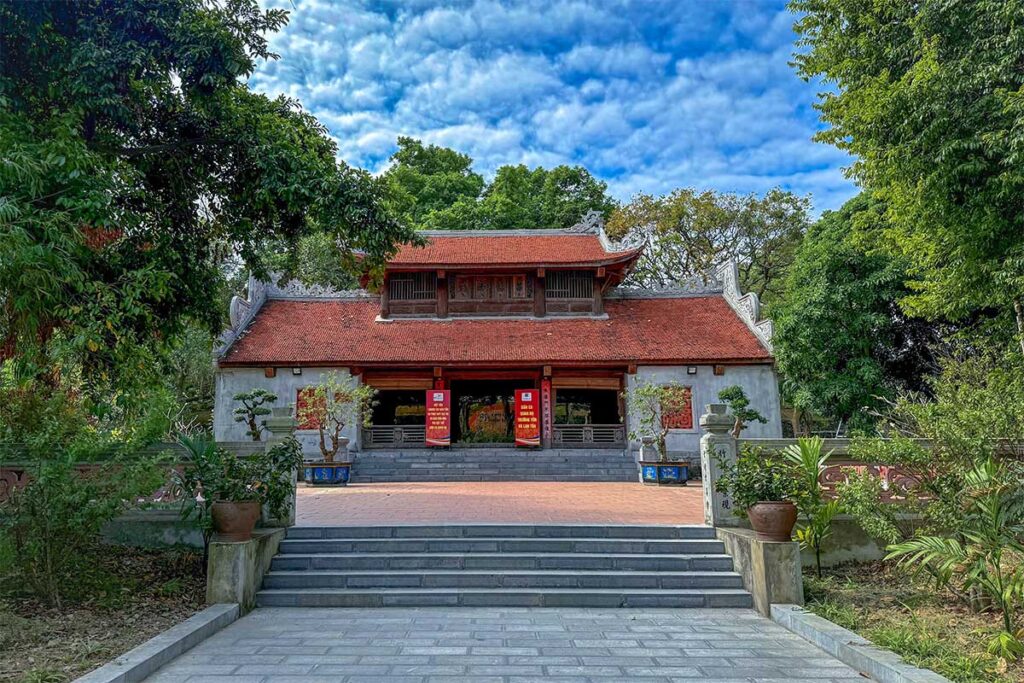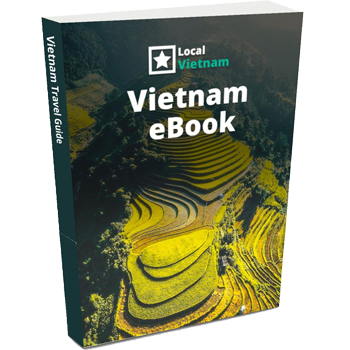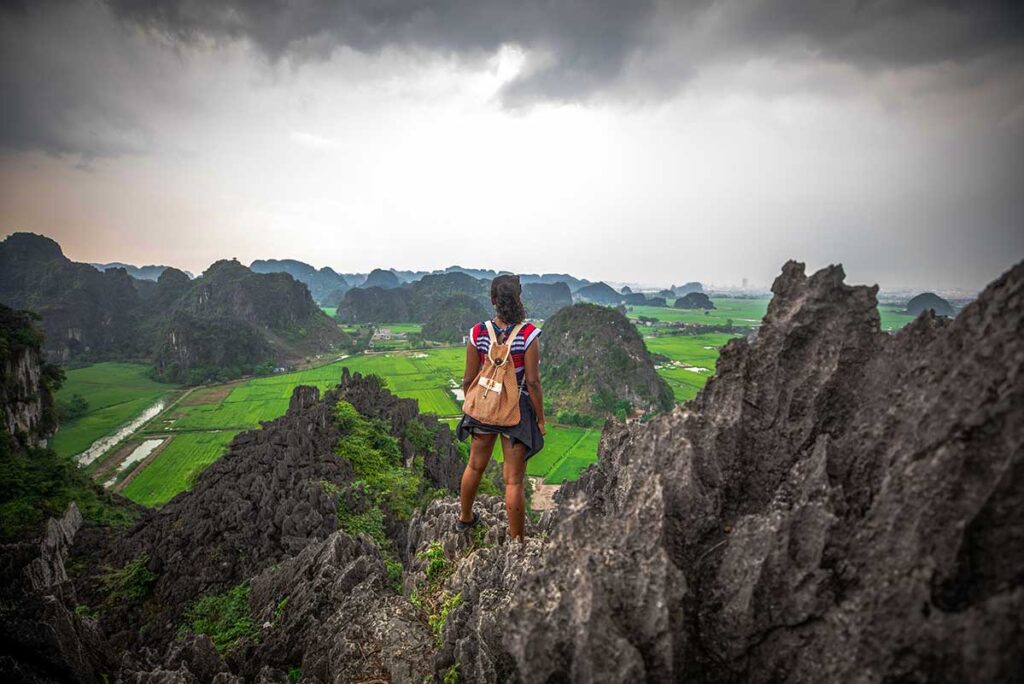What is Bo Da Pagoda?
Location & Setting
Bo Da Pagoda is located in Tien Son Commune, Viet Yen District, Bac Giang Province, about 55 km northeast of Hanoi. Tucked at the base of Phoenix Mountain (Nui Phuong Hoang) and near the Cau River, the temple is surrounded by pine trees, bamboo groves, and ancient rammed-earth walls, giving it a distinct, peaceful setting. The area feels quiet and spiritual, with soft countryside views and a hillside backdrop that adds to its meditative atmosphere.
Historical background
The origins of Bo Da Pagoda trace back to the Ly Dynasty in the 11th century, often referred to as the golden age of Buddhism in Vietnam. The temple was reconstructed in the 18th century, during the Le Trung Hung period, and became a major center for Lam Te (Lâm Tế) Zen Buddhism, one of the most influential Zen schools in the country. In 2016, it was officially recognized as a Special National Historical and Architectural Site, underlining both its cultural importance and architectural uniqueness.
Highlights and Things to see
1. Unique architecture
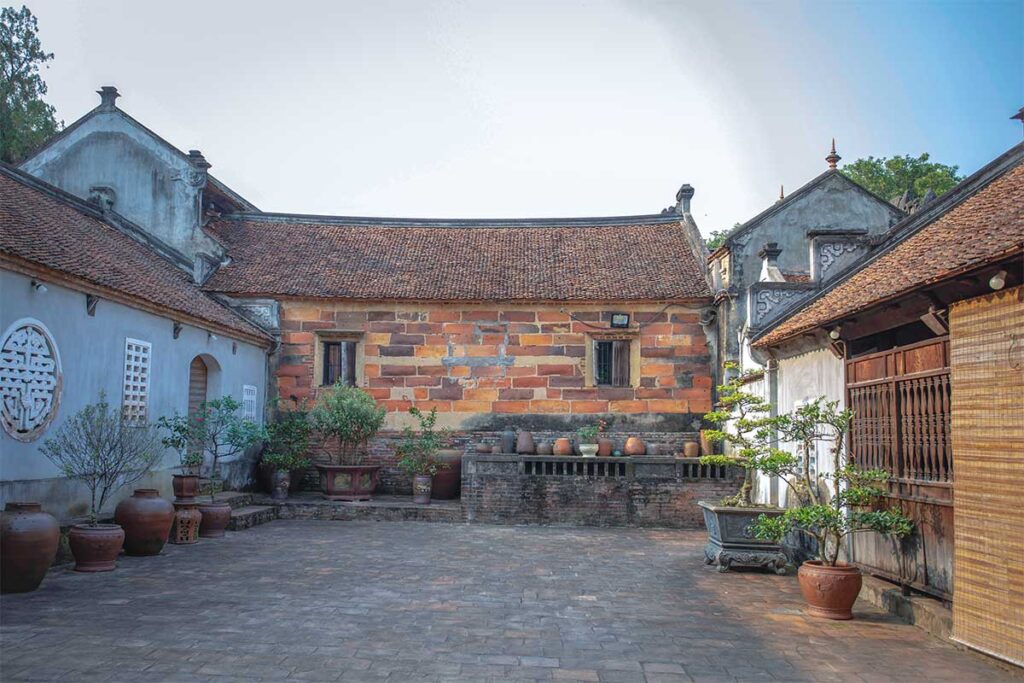
Bo Da Pagoda stands out for its use of traditional materials like compacted earth walls, terracotta tiles, and carved wooden beams. The layout follows the distinctive “nội thông, ngoại bế” design—closed off from the outside, yet maze-like within.
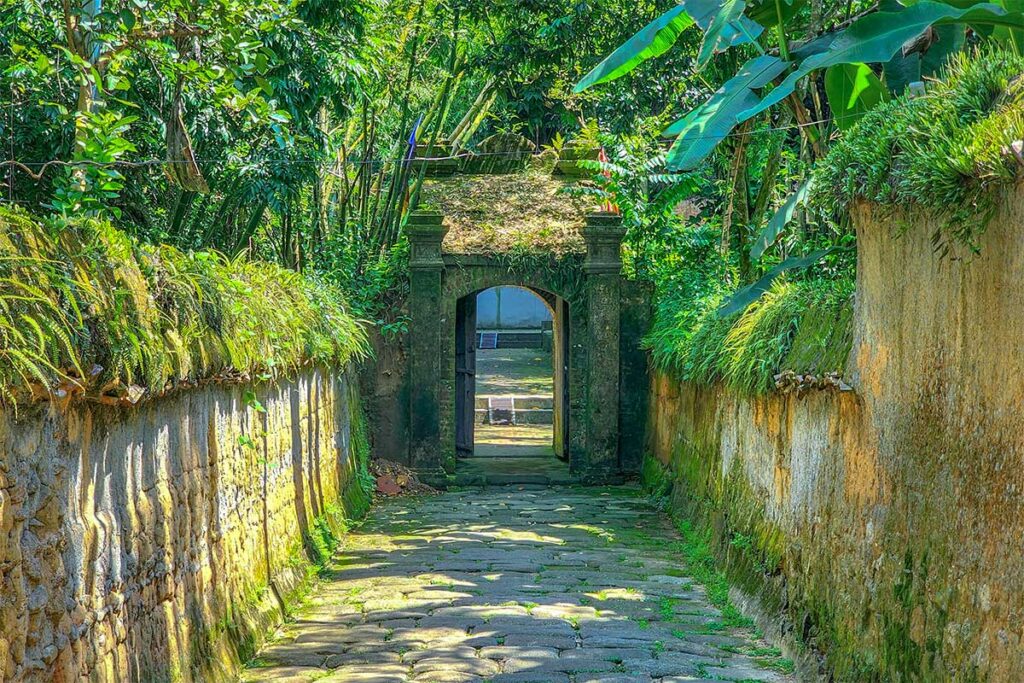
You’ll wander through a network of over 100 interconnected rooms, hidden shrines, and long corridors. The architecture feels rustic and serene, with earthy tones, moss-covered surfaces, large water jars, and ancient trees adding to the spiritual ambiance.
2. Tower Garden (Stupa Garden)
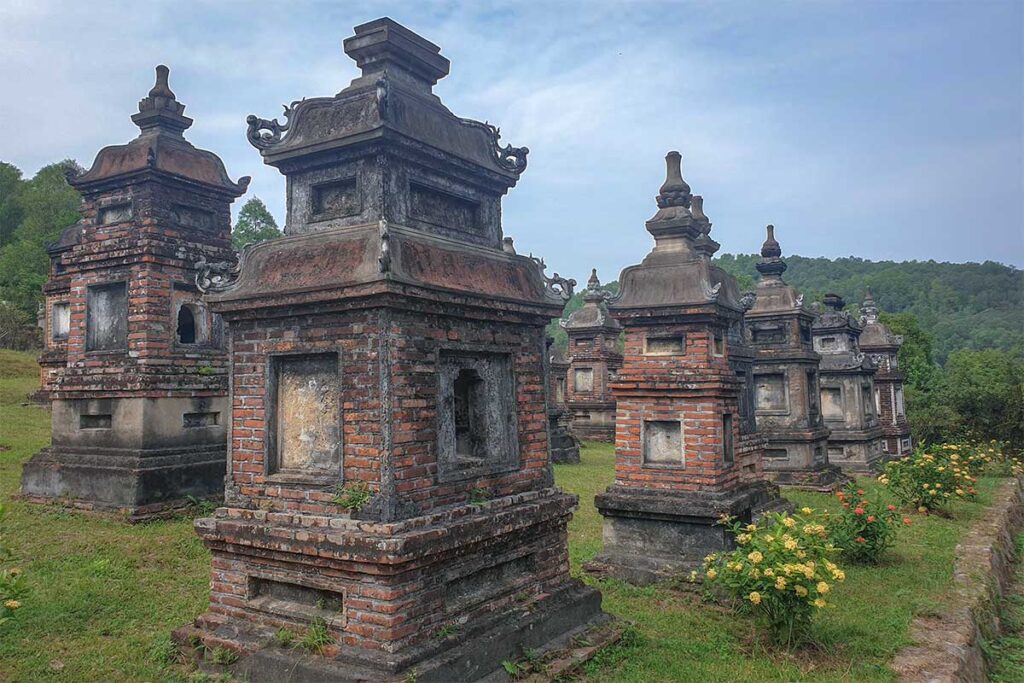
Behind the main pagoda lies the largest and best-preserved stupa garden in Vietnam, covering around 8,000 m². It contains more than 100 brick stupas, built using lime, molasses, paper pulp, and sand—each holding the ashes of generations of Lam Te Zen monks. It’s peaceful and slightly eerie, especially if you visit when the grounds are quiet. This space offers a deep connection to the spiritual and monastic history of Bo Da.
3. Buddhist Woodblocks
Bo Da Pagoda houses over 2,000 ancient Buddhist sutra woodblocks, carved on durable thi wood and used for teaching and printing texts. These rare items were declared a National Treasure of Vietnam in 2017. They’re usually kept in a locked library room but may be shown to visitors upon request or if you’re with a knowledgeable guide. The collection offers insight into Buddhist education and preservation techniques from centuries ago.
4. Main worship areas
The pagoda complex includes several important worship areas:
- Chùa Tứ Ân (Main Pagoda) – central ceremonial space
- Chùa Cao (Upper Pagoda) – sits higher up the hill, offering views and a more secluded feel
- Am Tam Đức – a smaller shrine area with symbolic relics
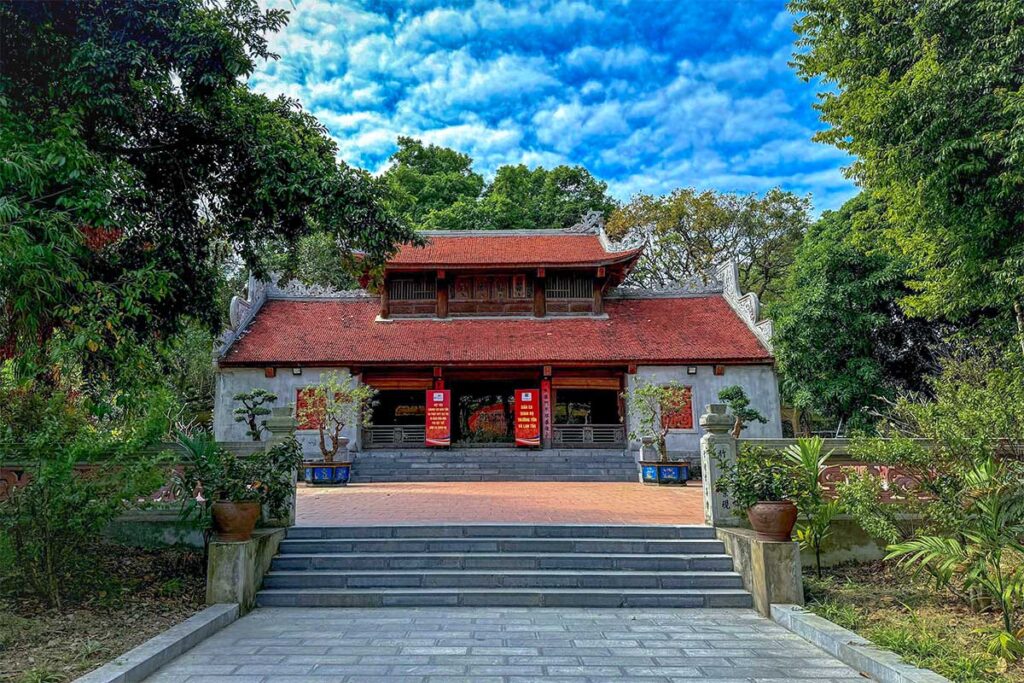
Many altars, statues, and decorative details date back to the Le Trung Hung era. Some areas, especially the Upper Pagoda, involve a bit of uphill walking.
5. Walks & Views
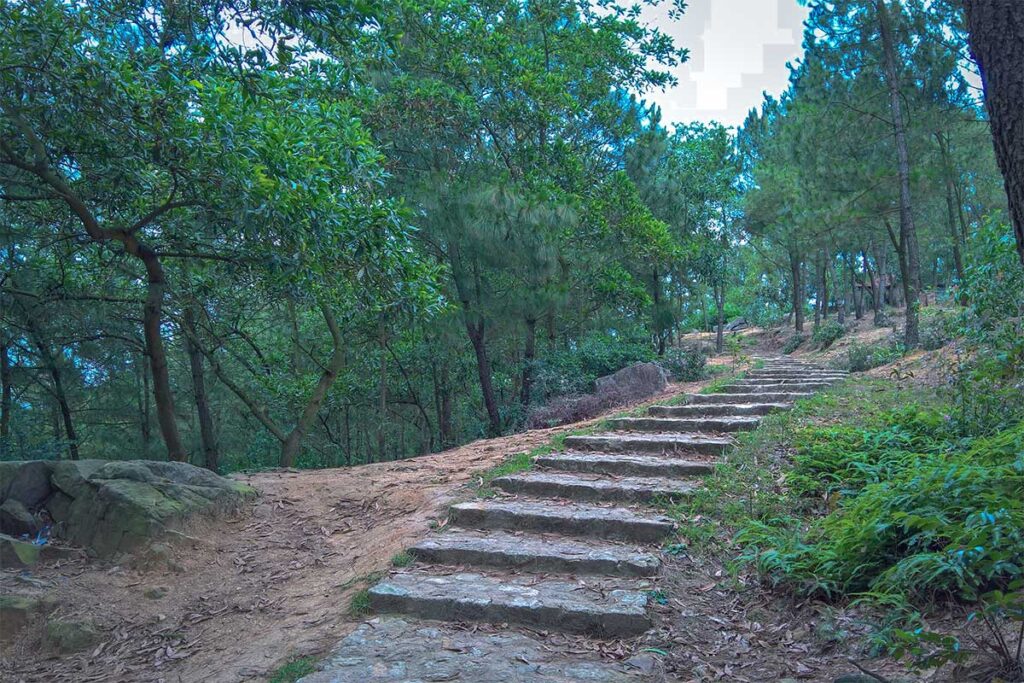
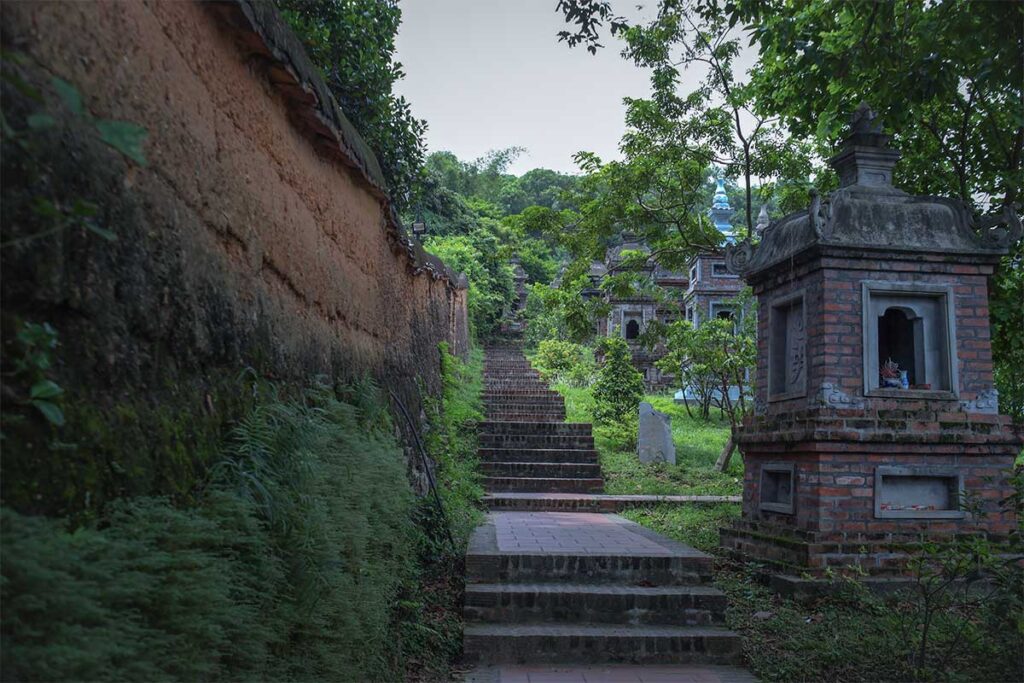
Behind the complex, you can explore short trails through pine and bamboo groves, with viewpoints overlooking Bac Giang Province and even parts of Bac Ninh. These paths aren’t long or difficult, but they are unpaved and can become slippery in wet weather. It’s a nice way to end your visit if you enjoy a quiet nature walk.
Bo Da Pagoda Festival
The Bo Da Pagoda Festival takes place every year from the 15th to 18th day of the 2nd lunar month (usually in March). It has been officially recognized as a National Intangible Cultural Heritage of Vietnam.
The festival features a mix of Buddhist prayer ceremonies, traditional Quan họ folk singing, calligraphy displays, and local food stalls. Monks, locals, and visitors come together to honor the spiritual legacy of the pagoda, making it one of the liveliest times to visit.
While it’s a great opportunity for cultural immersion, don’t expect a quiet, meditative atmosphere—crowds are common, especially on the main days of celebration. If you’re looking for solitude or peaceful photography, it’s best to avoid this period.
How to get there
Bo Da Pagoda is located about 1.5 hours from Hanoi by car, reachable via National Highway 1A or the faster CT03 expressway. There are no direct public buses to the site, so the most practical options are to rent a private car with driver, join a tour, or ride a motorbike if you’re experienced with traffic in Vietnam.
It’s easy to combine a visit with other Bac Giang highlights, such as Xuong Giang Citadel, Vinh Nghiem Pagoda, or Tho Ha Village, making for a well-rounded day trip through the area’s history and culture.
Travel tips
Best time to visit
The most pleasant months are spring (Feb–May) and autumn (Sept–Nov), when the weather is mild and the scenery clear. Avoid visiting at mid-day in summer, as the sun can be intense, and note that the trails can get slippery in rainy conditions. If you visit during the Bo Da Festival, expect big crowds, but also a vibrant cultural atmosphere.
What to bring
Wear comfortable shoes for walking between structures and up gentle slopes. Bring water and light snacks, especially on weekdays when few stalls are open. Dress modestly, covering shoulders and knees. Be aware of pushy vendors at the entrance—you’re not obligated to buy incense or joss paper.
Facilities
There are rest areas within the complex and basic food options on weekends or during the festival (noodles, tea, snacks). Toilets are available, though they’re simple and may lack Western-style amenities.
Is Bo Da Pagoda worth visiting?
Yes — but only in the right context. If you’re already in Bac Giang or doing a northern Vietnam road trip, Bo Da Pagoda is a worthwhile stop for its quiet atmosphere, rare stupa garden, and historical significance in Vietnamese Zen Buddhism.
But no — don’t make a special trip from Hanoi just for this. While culturally rich, the site lacks tourist infrastructure, signage, and dramatic visuals. If you have limited time in Vietnam or just a few days in Hanoi, your time is better spent exploring historic sites in the capital unless you’re specifically after something local, uncrowded, and low-key — and even then, combine it with other nearby spots, not as a standalone visit.
